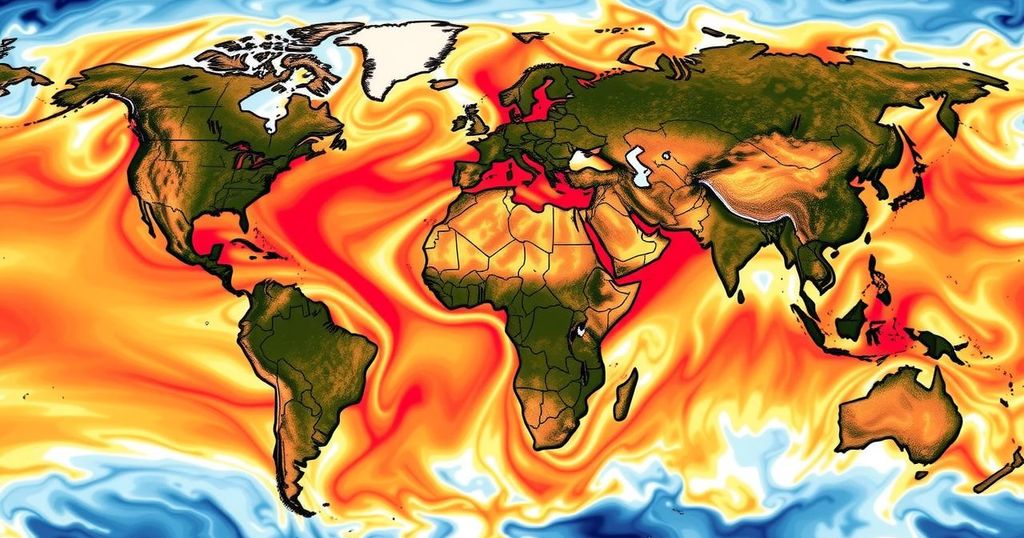2024 has been confirmed as the warmest year on record globally since 1850, with average temperatures exceeding critical thresholds set by the Paris Agreement. This year marked a significant rise in global temperatures, attributed primarily to human activity. The Copernicus Climate Change Service emphasizes the urgent need for decisive global action against climate change.
The year 2024 has been officially recognized as the warmest year on record globally, according to the EU-funded Copernicus Climate Change Service (C3S). This significant milestone highlights the urgent need for prompt global measures to combat climate change. For the first time, the average global temperature surpassed the critical threshold of 1.5 degrees Celsius above the pre-industrial level, as outlined by the Paris Agreement.
The average global temperature for 2024 reached 15.1 degrees Celsius, exceeding the previous record set in 2023 by 0.12 degrees Celsius. This figure represents a 1.6 degrees Celsius increase over the estimated pre-industrial baseline. Furthermore, the two-year average of 2023 and 2024 has also crossed the Paris Agreement’s 1.5 degrees Celsius limit.
The Paris Agreement aims to restrict global warming to well below 2 degrees Celsius, with an aspiration to limit it to 1.5 degrees Celsius by the end of the century. Although the current temperature anomaly has not breached this limit, it illustrates the unprecedented rise in global temperatures, far surpassing any recorded in modern history. Copernicus reported that in 2024, atmospheric water vapor levels reached a record high, around 5 percent above the 1991-2020 average, leading to severe heatwaves and heavy rainfall events.
Samantha Burgess, from the European Center for Medium-Range Weather Forecasts (ECMWF), highlighted the detrimental impact of these extreme weather patterns on millions worldwide. According to C3S climate scientist Julien Nicolas, these extreme temperatures were primarily caused by human-induced climate change, with contributing factors such as the El Niño Southern Oscillation also playing a role.
Acknowledging the gravity of the situation, C3S Director Carlo Buontempo remarked on the essentiality of immediate action to alter the adverse trajectory of climate change. The report presents a clear message that the future of our planet relies on decisive global efforts to mitigate climate impacts.
The issue of global warming pertains to the continuous increase in average global temperatures primarily due to human activities such as burning fossil fuels, deforestation, and industrial processes. The 2015 Paris Agreement established goals to limit this increase, particularly emphasizing the significance of not surpassing a 1.5 degrees Celsius rise above pre-industrial levels. Scientific assessment, coupled with recent data, indicates that global temperatures have reached alarming levels, necessitating immediate international cooperation and action to avert catastrophic climate outcomes.
In summary, the confirmation of 2024 as the hottest year on record not only emphasizes the seriousness of climate change but also calls for immediate action according to the guidelines of the Paris Agreement. With the global temperature rising above critical thresholds, it is imperative for nations to collaborate and implement measures aimed at reducing greenhouse gas emissions and fostering sustainability to secure a stable climate for future generations.
Original Source: www.socialnews.xyz






